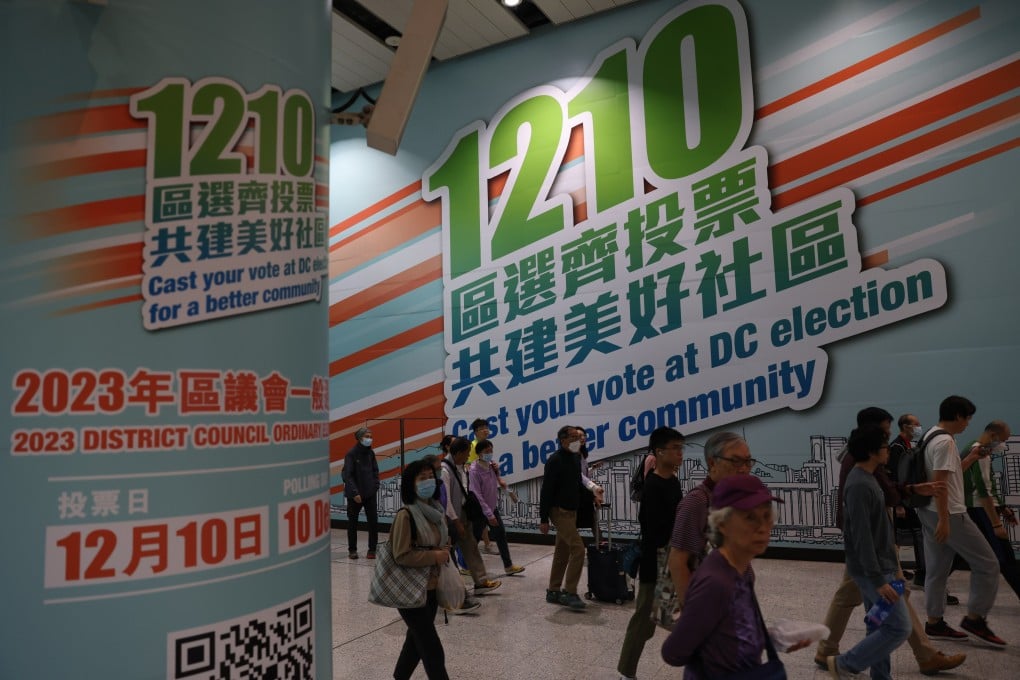Hong Kong district council election: candidates confront apathy and public confusion on campaign trail
- Voters have been struggling to understand changes to electoral model that slashed number of directly elected seats and enlarged constituencies
- Campaigning marked by little physical interaction between candidates and residents, prompting question of whether people will vote for someone they have never met

Under a hot noon sun, Li Chi-keung dished out campaign leaflets for a candidate running in a Hong Kong Island East constituency, but few passers-by bothered to take one.
“The election atmosphere is indeed not as fervent as before,” the 70-year-old volunteer said. “It is obvious that people are not that interested in election stuff after the social movement [in 2019].”
Hong Kong’s 4.3 million registered voters have been adjusting to a series of changes introduced under Beijing’s “patriots-only” governing principle, including the proportion of popularly elected seats being cut from more than 90 per cent of the councils’ total to less than 20 per cent.
This year, 88 seats will be directly elected in 44 constituencies, while the chief executive will choose 179 others and about 2,500 government-appointed members of three local committees in each district will decide the remaining 176.
Under the new nomination rules, no opposition hopefuls secured enough backing to run after previously winning more than half of the votes in previous polls, an absence that some observers say has sapped public interest in Sunday’s contest.
Google Trends shows the search popularity of “district council” in the first week of December was one-tenth the level recorded during the last election for the municipal-level bodies in November 2019 when anti-government protests gripped the city and a record 71 per cent of voters took part.